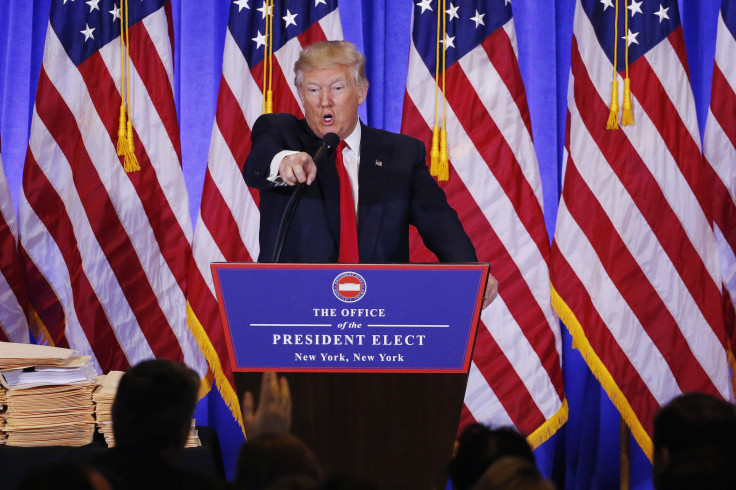Conservative Group Pushes Companies To Stop Advertising On News Outlets Critical Of Trump

In the wake of the ultimately inconsequential #FireColbert fiasco, many on the left accused the Federal Communications Commission of attempting to censor the Late Show host by launching an investigation into his obscene joke last week. (In fact the FCC probe was rather routine.) But in the meantime, a conservative group has been working to drain ad funding from mainstream media voices critical of the president, saying their content is “fake news” and “hostile to the Trump administration.”
The National Center for Public Policy Research, a 35-year-old conservative think tank, announced Wednesday that it would be questioning Ford Motor Co. executives at an annual company shareholder meeting Thursday about where the company chooses to advertise. Ford had earlier rejected an NCPPR shareholder proposal asking specifically for a review of Ford’s advertising on outlets such as Politico, the New York Times, CNN, the Washington Post, NBC, ABC and CNBC. To make the case that those media outlets are biased against the right, the group cited emails from Hillary Clinton’s campaign chair, John Podesta, surfaced by WikiLeaks, which showed certain contributors and reporters flattering Democratic sources or promising to treat them nicely.
NCPPR General Counsel Justin Danhof — who pointed to the group’s similar proposals with the pharmaceutical companies Eli Lilly and Co., Pfizer Inc., Bristol-Myers Squibb Co. and Merck & Co. this year — said the 501(c)(3) was “not targeting anybody” and simply worried about Ford’s “reputational risk” in the face of pro-Trump car buyers.
“A lot of folks seem to be forgetting, I guess because Trump beat Hillary Clinton, that there was high-level corruption between the media and these elite liberals… Are the supporters of President Trump looking down on Ford for advertising on those outlets?” Danhof said. Asked whether the group would level similar campaigns against firms advertising on right-leaning outlets like Fox News, he said that there are already “clearly targeted attacks on people who worked with Breitbart, people who worked with Bill O’Reilly.”
But although the NCPPR does not have to disclose its donors and describes itself as “non-partisan,” it has received donations from ExxonMobil Corp. while vocally denying climate change, as well as from Donors Trust and Donors Capital Fund, the latter of which has been described by Mother Jones as the “dark-money ATM of the conservative movement.”
Ford rejected the group’s proposal “because it encompasses matters relating to the Company’s ordinary business operations.” The company dismissed the NCPPR’s “buzz words” and assertions that advertising on the news networks and publications amounted to “indirect political spending,” according to the shareholder proposal documents. In response to NCPPR’s worries that advertisements on the news channels and websites produced a market risk for the company in the form of potential lost sales among Trump’s supporters, the company cited its own recent Sustainability Report, which said “we always reserve the right to speak with our own voice and make our own stance clear.”
“We value discussion and input from our shareholders, which is why we treat all shareholder proposals equally,” a Ford spokesperson said in a statement. “This proposal violates the [Security and Exchange Commission’s] rules related to what is appropriate for shareholders to vote on, which is why it has been excluded.”
© Copyright IBTimes 2024. All rights reserved.






















